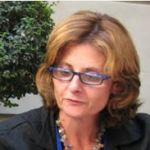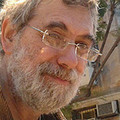
 |
| Die Zukunft |
 By Guido Vitale* By Guido Vitale*“Die Zukunft war früher auch besser" (Karl Valentin) *Guido Vitale is the editor-in-chief of Pagine Ebraiche. |
 |
| Italian Word of the Week PIO |
| by Daniela
Gross “Pio” is the Italian translation of Pius, a name which has Latin roots and means "pious, dutiful". In the past, twelve popes chose this auspicious name, the last one being Pius XII. He reigned from March 2,1939 to his death in 1958, during the dramatic years of the World War II. He has always been considered a controversial figure, mainly for his actions during the Shoah. Was he the “Pope of Hitler”, as described by some historians, because he never took a public stand against the anti-Jewish persecutions? Or was he the “Vatican’s Schindler”, as many otherS refer to him, because many Jews in those years found their salvation in Catholic institutions? While scholars still wait for the opening of the Vatican Archives, his name suddenly returned to the spotlight, triggering a harsh debate. On March 2, “Shades of Truth”, a movie written and directed by the Italian Liana Marabini, and dedicated to Pius XII, was presented in the Vatican. The film didn’t indulge in too many subtleties and portrayed the pontiff as saving over 800,000 Jews all over Europe. Ms. Marabini, who in the past directed other movies on the history of the Church, wanted in this way to support the pontiff’s beatification. However, “Shades of Truth” met with fierce opposition. Pagine Ebraiche had already alerted its readers about it (“The archives are still closed but Catholic cinematography gives us another fiction to rewrite history”, it said), and after its presentation definitevely rejected it. So did the main Italian newspapers. Among them was also the Osservatore Romano, the Vatican’s daily newspaper which stated: “It’s not with works such as ‘Shades of Truth’ that one can help historical understanding of the actions of Pius XII and his Church in relation to the Jewish people during the World War II.” |






This newsletter is published under difficult conditions. The editors of this newsletter are Italian journalists whose native language is Italian. They are willing to offer their energy and their skills to give international readers the opportunity of learning more about the Italian Jewish world, its values, its culture and its traditions.
In spite of all our efforts to avoid this, readers may find an occasional language mistake. We count on your understanding and on your help and advice to correct these mistakes and improve our publication.
Pagine Ebraiche International Edition is published by the Union of Italian Jewish Communities (UCEI). UCEI publications encourage an understanding of the Jewish world and the debate within it. The articles and opinions published by Pagine Ebraiche International Edition, unless expressly stated otherwise, cannot be interpreted as the official position of UCEI, but only as the self-expression of the people who sign them, offering their comments to UCEI publications. Readers who are interested in making their own contribution should email us at desk@ucei.it
You received this newsletter because you authorized UCEI to contact you. If you would like to remove your email address from our list, or if you would like to subscribe using a new email address, please send a blank email to desk@ucei.it stating "unsubscribe" or "subscribe" in the subject field.
© UCEI - All rights reserved - The articles may only be reproduced after obtaining the written permission of the editor-in-chief. Pagine Ebraiche - Reg Rome Court 199/2009 – Editor in Chief: Guido Vitale - Managing Editor: Daniela Gross.
Special thanks to: Francesco Moises Bassano, Susanna Barki, Amanda Benjamin, Monica Bizzio, Angelica Edna Calò Livne, Eliezer Di Martino, Alain Elkann, Dori Fleekop, Daniela Fubini, Benedetta Guetta, Sarah Kaminski, Daniel Leisawitz, Annette Leckart, Gadi Luzzatto Voghera, Yaakov Mascetti, Francesca Matalon, Jonathan Misrachi, Anna Momigliano, Giovanni Montenero, Elèna Mortara, Sabina Muccigrosso, Lisa Palmieri Billig, Jazmine Pignatello, Shirley Piperno, Giandomenico Pozzi, Daniel Reichel, Colby Robbins, Danielle Rockman, Lindsay Shedlin, Michael Sierra, Rachel Silvera, Adam Smulevich, Simone Somekh, Rossella Tercatin, Ada Treves, Lauren Waldman, Sahar Zivan.
Questo notiziario è realizzato in condizioni di particolare difficoltà. I redattori di questo notiziario sono giornalisti italiani di madrelingua italiana. Mettono a disposizione le loro energie e le loro competenze per raccontare in lingua inglese l'ebraismo italiano, i suoi valori, la sua cultura e i suoi valori. Nonostante il nostro impegno il lettore potrebbe trovare errori e imperfezioni nell'utilizzo del linguaggio che faremo del nostro meglio per evitare. Contiamo sulla vostra comprensione e soprattutto sul vostro aiuto e sul vostro consiglio per correggere gli errori e migliorare.
Pagine Ebraiche International Edition è una pubblicazione edita dall'Unione delle Comunità Ebraiche Italiane. L'UCEI sviluppa mezzi di comunicazione che incoraggiano la conoscenza e il confronto delle realtà ebraiche. Gli articoli e i commenti pubblicati, a meno che non sia espressamente indicato il contrario, non possono essere intesi come una presa di posizione ufficiale, ma solo come la autonoma espressione delle persone che li firmano e che si sono rese gratuitamente disponibili. Gli utenti che fossero interessati a offrire un proprio contributo possono rivolgersi all'indirizzo desk@ucei.it
Avete ricevuto questo messaggio perché avete trasmesso a Ucei l'autorizzazione a comunicare con voi. Se non desiderate ricevere ulteriori comunicazioni o se volete comunicare un nuovo indirizzo email, scrivete a: desk@ucei.it indicando nell'oggetto del messaggio "cancella" o "modifica".
© UCEI - Tutti i diritti riservati - I testi possono essere riprodotti solo dopo aver ottenuto l'autorizzazione scritta della Direzione. Pagine Ebraiche International Edition - notiziario dell'ebraismo italiano - Reg. Tribunale di Roma 199/2009 - direttore responsabile: Guido Vitale - Coordinamento: Daniela Gross.
Realizzato con il contributo di: Francesco Moises Bassano, Susanna Barki, Amanda Benjamin, Monica Bizzio, Angelica Edna Calò Livne, Eliezer Di Martino, Alain Elkann, Dori Fleekop, Daniela Fubini, Benedetta Guetta, Sarah Kaminski, Daniel Leisawitz, Annette Leckart, Gadi Luzzatto Voghera, Yaakov Mascetti, Francesca Matalon, Jonathan Misrachi, Anna Momigliano, Giovanni Montenero, Elèna Mortara, Sabina Muccigrosso, Lisa Palmieri Billig, Jazmine Pignatello, Shirley Piperno, Giandomenico Pozzi, Daniel Reichel, Colby Robbins, Danielle Rockman, Lindsay Shedlin, Michael Sierra, Rachel Silvera, Adam Smulevich, Simone Somekh, Rossella Tercatin, Ada Treves, Lauren Waldman, Sahar Zivan.





